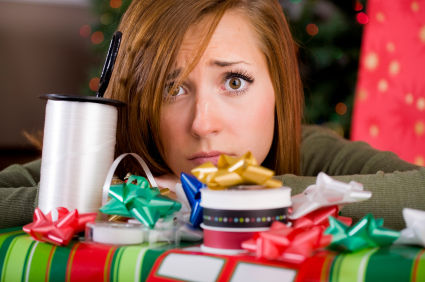Q: I have a friend who has had depression for a while. I feel bad for her, but it almost seems like there’s nothing I can do. I wondered if you knew of anything natural I could suggest to her that might help.
A: Depression is a problem that affects 14.8 million Americans, so your friend is certainly not alone. Sadly many people don’t want to talk about or seek help for depression because they think somehow there is something wrong with them or they are embarrassed by having a problem. People often think (or are given the advice) that they just need to “snap out of it”, but often recovering from depression is not that simple. There are countless prescription drugs that are marketed for depression, and sometimes a prescription may be necessary, but before turning to pharmaceuticals for treatment it would be smart to try some of the many natural treatments for depression. It’s always wise to try to fix a problem naturally before turning to prescription drugs and the side effects that frequently come with them.
Deciding to seek professional help is always a good idea, since sometimes just talking to someone who is removed from the situation can help a person to see things in a more positive light. So to your friend and anyone else who is reading this and suffers from depression, let me say emphatically that there is nothing wrong with you, but rather you have a problem that needs to and is able to be fixed.
The first thing I would recommend for depression is fish oil. Everyone should be taking omega 3 fish oil, which has been shown in countless studies to have benefits in nearly all facets of health from heart health to lowering cholesterol to reducing inflammation and finally to its use in brain function. The omega 3s in fish oil are a main building block in having proper brain chemistry. Without enough omega 3s, neurotransmitters in the brain can’t work as efficiently, and when your brain isn’t working right, you can feel depressed or anxious. Omega 3s are not manufactured in the body and must be obtained from supplements and diet, though unfortunately the diet of most Americans isn’t very high in heart healthy fish or nuts and seeds that contain omega 3s. One recent study found that higher intakes of omega 3 oils and oily fish reduced the number of occasions that participants experienced depressive symptoms.
Our brains are made up of omega 3 fats, so it only makes sense that supplementing with fish oils would help the brain to run better.
The second building block to proper brain function are B vitamins. A common reason for mild
depression is an imbalance of neorotransmitters in the brain which can act as mood enhancers by helping to transmit signals between brain cells. Prescription antidepression medications like Prozac or other SSRIs focus on the neurotransmitter serotonin and work to make that neurotransmitter stay longer in the body. Supplementing with a high potency B complex can have similar results in the brain by converting amino acids into serotonin as well as helping to synthesize other feel good neurotransmitters. Danish and Dutch studies in recent years have backed up this idea by showing that people who suffer from depression are often deficient in one or more B vitamins. Each of the B vitamins work a little differently to do different things in the body and brain, but its recommended to take a complete B complex rather than just one specific B vitamin because they work best when taken together.
Fish oils and B vitamins are the building blocks to have a sturdy foundation of brain health.
There are several other supplements that work very well to help with combating depression and anxiety that can be taken in addition to those foundational supplements. 5-HTP is an amino acid that is a serotonin precursor meaning a supplement that turns into serotonin in the body. SSRI class antidepressants like Prozac block the uptake of serotonin in the body so in stays along longer, but it doesn’t actually increase the amount of serotonin (the feel good neurotransmitter) in the body, so if your body isn’t making enough serotonin in the first place, drugs like Prozac won’t help as much. One way to look at it is an analogy of a sink. With 5-HTP you aren’t plugging up the sink, you’re just adding more to it. One six week study found that participants who took 300mg daily of 5-HTP had the same depression relief as
those who took prescription antidepressants but with fewer side effects. 5-HTP works very well, but it’s important to not mix it with Prozac or other antidepressants known as SSRIs.
Another favorite supplement that I would recommend for depression and anxiety is an amino acid L-theanine which is derived from green tea. Theanine works by helping to increase the amount of GABA, another neurotransmitter that promotes relaxation and reduces anxiety without drowsiness. Theanine has actually been shown by researchers to help increase alpha brain wave patterns which are connected to being in an alert, relaxed state. It’s a great supplement to take when you’ll be going into a situation that you know is going to make you stressed and anxious.
There are many other supplements that are helpful in treating depression, and I’ve only mentioned a few. Each of us are different and our brains work differently, so sometimes it can take time to find the supplement that is right for you. Because of this it’s helpful to speak to someone who is knowledgeable about different natural supplements. One nice thing about natural treatments for depression is that unlike pharmaceuticals they can be stopped at any time without causing withdrawal symptoms. I hope some of this information can help your friend. There is no reason to suffer depression in silence without seeking treatment.
Depression affects millions of Americans and it’s nothing to be ashamed of. Good
luck!



